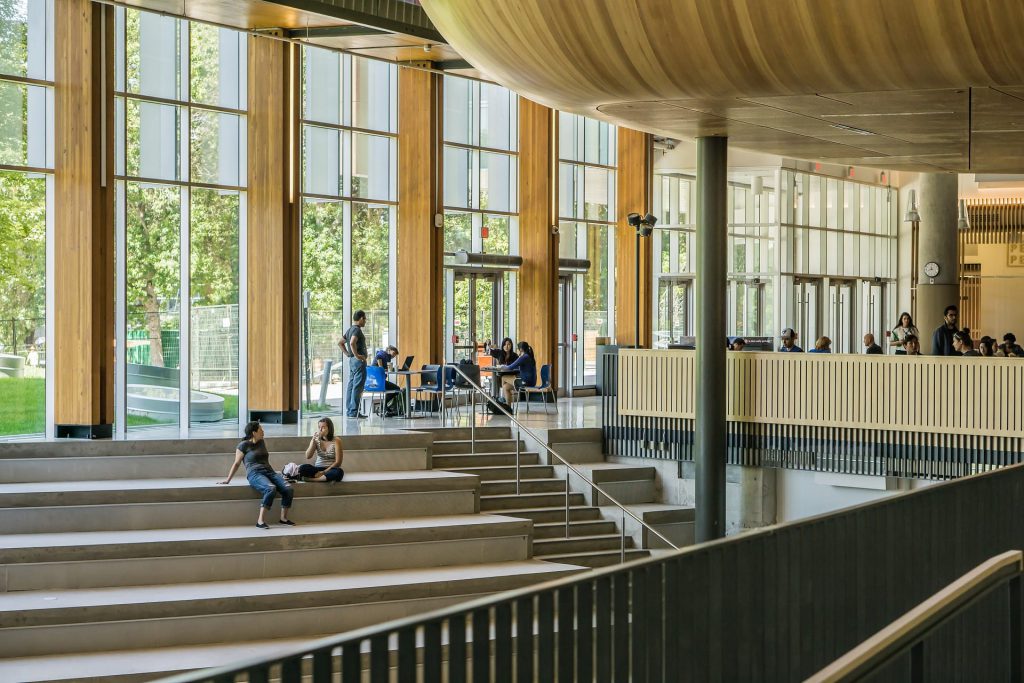
7 Reasons You Should Consider Studying Abroad in Canada
Canada is a popular choice for international students, with over 600,000 people travelling there to study every year. In the last decade, the international student population has tripled, and it was recently ranked the best country in the world. With such a huge range of courses and universities, combined with a society that warmly welcomes people from abroad, it’s easy to see why so many people are choosing to study in Canada.
Variety of courses
Universities in Canada offer more than 15,000 undergraduate and graduate degree programmes, plus many professional degree programmes, diplomas and certificates. All Canadian qualifications are internationally acknowledged and held in the same regard as the UK equivalent, so whatever you choose to do, your future employer will recognise your achievement.
Quality education
Canada is well known for its top-quality education. The University of Toronto and the University of British Columbia are included in the top 100 universities in the world and Canada prides itself on employing highly trained academics to teach at their institutions.
Beautiful locations
There are 10 provinces in Canada, all of which have their own education system and study application process. They also are all home to different landscapes, from sprawling coastlines, vast prairies, gorgeous lakes, and immense mountains. Provinces in the West of Canada, like British Columbia and Alberta, have the coldest weather, seeing temperatures plummeting to minus 20 degrees the further north you go. But in the East, cities like Toronto and Ottawa can see highs of 20-27 degrees in the summer.
Low costs
Canada is one of the cheapest places for tuition fees in an English-speaking country. Depending on the university and course, fees for international students can range from $4,000 to $6,000 CAD (£2,500 to £3,600), and some fees can go up to $25,000 CAD (£14,300) per year. If you study in Canada, you will need to consider other costs, such as accommodation, books, food, and transportation, which will all vary depending on where you study. There are many universities in smaller towns, where the cost of living will be cheaper, but even those institutions in bigger cities can be more affordable than other countries. You may also need to purchase international student health insurance, depending on the province that you go to. If you are staying in Canada for less than a year, or plan to travel around the country, it may be useful to purchase travel insurance.
Cultural diversity
The Canadian multiculturism policy aims to celebrate, recognise and represent cultural and racial diversity in Canada, and to make multiculturism a fundamental characteristic of Canadian heritage. It’s for that reason that so many people choose to live, work and study abroad, with over 22% of the population being born overseas. A person from every country in the world was photographed in Toronto by photographer Colin Boyd Shafer, which demonstrates Canada’s commitment to multiculturalism perfectly. You’re sure to be welcomed with open arms by Canadians, whether you choose to study in a small town or a big city.
Things to do
Canada is home to 38 national parks and many landmarks, such as Niagara Falls and the Canadian Rockies. Whether you’re interested in water sports, hiking, architecture, or nature, you’ll always be able to find something to keep you entertained when you’re not studying. You may even want to take part in the Canadian custom of the polar bear dip to celebrate New Year – whilst polar bears aren’t actually present for the event, it does involve cutting a hole in the ice and going for a swim. Make sure to bring your warm clothes for after the dip!
Setting you up for the future
In the last decade, 1.8 million new jobs were created for university graduates in Canada. So, if you decide to stay in the country after graduating, you should be in a strong position to find the right job for you. This year, Canada is aiming to welcome over 200,000 skilled and intermediate-skilled workers from overseas through their immigration programmes. There are a few ways you can apply to work and live in Canada, but whichever way is best for you, with a Canadian qualification and experience in the country, you’ll have a strong foundation to make your application.
